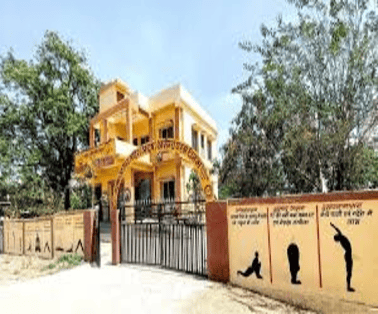The Union Housing and Urban Affairs Ministry has extended the deadline of its Smart Cities Mission from June this year to March 2024
Smart Cities Mission
- Smart Cities Mission was launched on 25 June, 2015.
- The main objective of the Mission is to promote cities that provide core infrastructure, clean and sustainable environment and give a decent quality of life to their citizens through the application of ‘smart solutions’.
- The Mission aims to drive economic growth and improve quality of life through comprehensive work on social, economic, physical and institutional pillars of the city.
- The focus is on sustainable and inclusive development by creation of replicable models which act as lighthouses to other aspiring cities.
Components Of Smart Cities Mission
- There are two components of SCM where the local-area development will be enabled through Area-based development and existing citywide infrastructure through Pan-city development.
- Area-based development includes city improvement (retrofitting), city renewal (redevelopment) and city extension (greenfield development), plus a pan-city initiative in which ‘smart solutions’ are applied covering larger parts of the city.
- Key focus areas of the scheme include construction of walkways, pedestrian crossings, cycling tracks, efficient waste-management systems, integrated traffic management and assessment.
- The scheme also assesses various indices to track urban development such as the Ease of Living Index, Municipal Performance Index, City GDP framework, Climate Smart Cities assessment framework, etc
Principles Of Smart Cities Mission
There is no standard definition or template of a smart city. In the context of our country, the six fundamental principles on which the concept of Smart Cities is based are:
- Community at the core
- More from less
- Cooperative and Competitive Federation
- Integration, Innovation Sustainability
- Technology as means, not the goal
- Convergence
Finance Of Smart Cities Mission

Integrated Command and Control Centre (ICCC) Of Smart Cities Mission
- The Smart Cities Mission includes setting up ICCCs for each such city as a vital step.
- These ICCCs are designed to enable authorities to monitor the status of various amenities in real time.
- The ICCC acts of a smart city acts as a “nerve centre” for operations management.
- It processes a complex and large pool of data sets at an aggregated level.
- The ICCC is the nodal point of availability of all online data and information relating to smart services included in a smart city
Smart Cities Mission Extension
- This is to enable all 100 smart cities to not only complete their projects but also document and disseminate the learnings from the mission
- 50 out of the 100 cities have completed 75% of the projects
- As on April 30, the cities had completed 5,700 projects or 72% of the total number of projects and 60% of the total value of the projects.
- Over 80% of the projects in the big cities have been completed, while the completion rate for smaller cities stands at 66%
- Under the mission, all 100 cities had set up integrated command and control centres at a total cost of Rs 11,775 crore.
To Download Monthly Current Affairs PDF Click here
Get Inspiration from CLAT 2025 Topper
Click here to get a free demo
Everything About CLAT 2025



